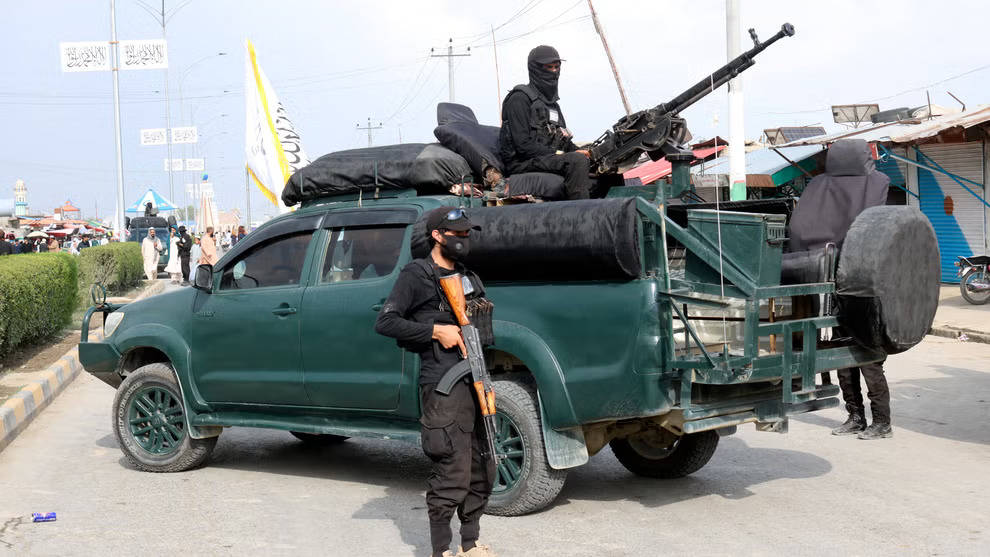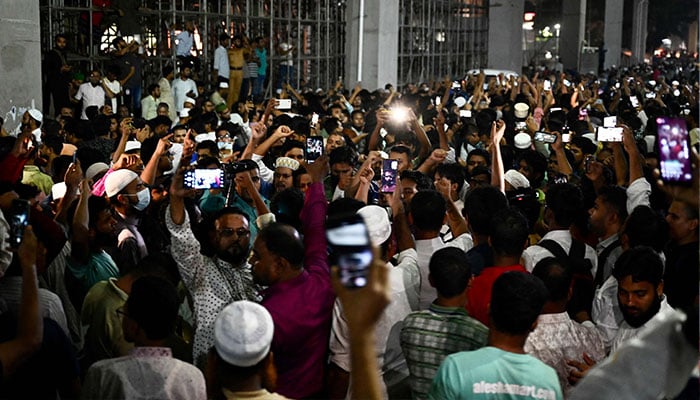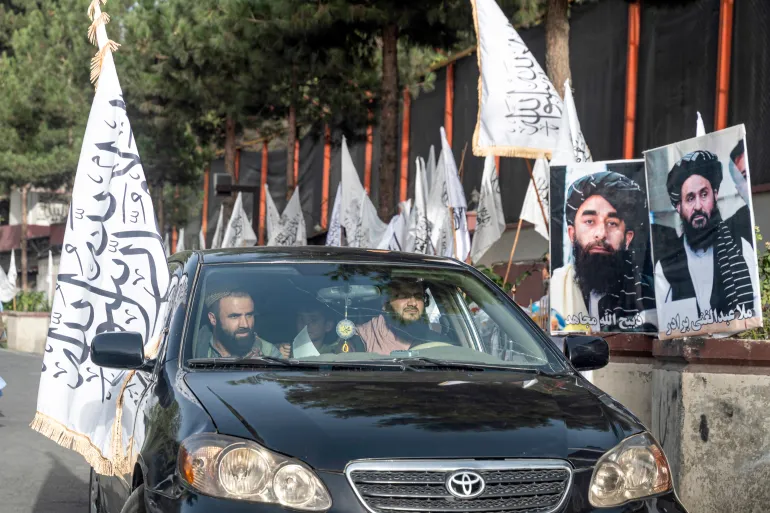The Afghan Taliban is marking the second anniversary of its return to power with a public holiday, celebrating the takeover of Kabul and the establishment of what it described as security across the country under an “Islamic system”. “On the second anniversary of the conquest of Kabul, we would like to congratulate the mujahid [holy warrior] nation of Afghanistan and ask them to thank Almighty Allah for this great victory,” the spokesman for the Taliban, Zabihullah Mujahid, said in a statement on Tuesday. “Now that overall security is ensured in the country, the entire territory of the country is managed under a single leadership, an Islamic system is in place and everything is explained from the angle of Sharia [Islamic law],” Mujahid said. Security was tight in the capital, Kabul, on Tuesday as soldiers stepped up checks. Convoys of Taliban members gathered at Massoud Square near the abandoned US embassy building. Some of the men carried their weapons, while others snapped selfies as anthems blared and boys sold the movement’s white flag inscribed with the Islamic declaration of faith. In Herat in the west, a crowd of Taliban supporters chanted: “Death to the Europeans, death to the Westerners, long live the Islamic Emirate of Afghanistan, death to the Americans.” A military parade was cancelled in Kandahar, the cradle of the Taliban movement, from where its reclusive supreme leader, Hibatullah Akhunzada, rules by decree. Akhunzada called off the parade himself so as not to disturb the public, provincial officials told journalists. A poster of Taliban Supreme Leader Hibatullah Akhundzada is seen along a road in Kabul A poster of Taliban supreme leader, Hibatullah Akhunzada, is seen along a road in Kabul [Wakil Kohsar/AFP] The Taliban government is still not formally recognised by any country. The international community continues to grapple with how, and if, to engage with the Taliban authorities. After a lightning offensive as US-led foreign forces were withdrawing after 20 years of inconclusive war, the Taliban entered the capital on August 15, 2021, as the US-backed president, Ashraf Ghani, fled and the Afghan security forces, set up with years of Western support, disintegrated. Afghanistan is enjoying peace not seen in decades, but the United Nations says there have been dozens of attacks on civilians, some claimed by the ISIL (ISIS) armed group. The Taliban, which says it respects rights in line with its interpretation of Islamic law, has also stopped most Afghan female staff from working with aid agencies, closed beauty salons, barred women from parks and curtailed their travel in the absence of any male guardian. Taliban Palace: The second year of Taliban rule in Afghanistan | Witness Girls aged above 12 years have been mostly excluded from classes since the Taliban returned to power. For many Western governments, the ban is a major obstacle to any hope of formal recognition of the Taliban administration. But most Muslim-majority countries and Islamic scholars have rejected Taliban’s stand on women’s rights. Some Taliban leaders back education for women, with a senior leader saying that Islam grants women right to education and work. The Taliban hopes that progress will help bring foreign recognition and the lifting of sanctions, and the release of about $7bn in central bank assets frozen in the US Federal Reserve Bank of New York in 2021 after the Taliban took control, half of which was later transferred to a Swiss trust. According to the UN special representative, the corruption that exploded as Western money poured in for years after the Taliban was toppled in 2001, has been reduced. There are also signs that a Taliban ban on narcotics cultivation has dramatically reduced poppy production in what has for years been the world’s biggest source of opium. But a group of UN experts hit out on Monday at pledges by Taliban authorities of a softer rule than during its first stint in power from 1996 to 2001. “Despite reassurances by the Taliban de facto authorities that any restrictions, particularly in terms of access to education would be temporary, the facts on the ground have demonstrated an accelerated, systematic, and all-engulfing system of segregation, marginalisation and persecution,” the experts said in a statement. “The gap between promises and practices by Afghanistan’s de facto authorities has widened, and the idea of a “reformed” Taliban has been exposed as mistaken,” they added. Source: https://www.aljazeera.com/news/2023/8/15/taliban-marks-two-years-since-return-to-power-in-afghanistan


















